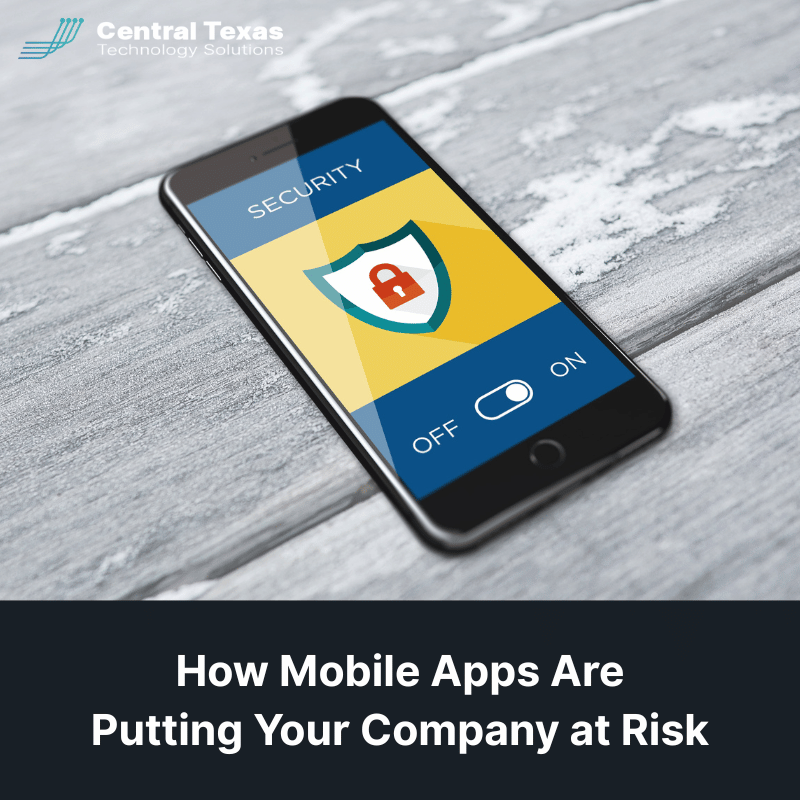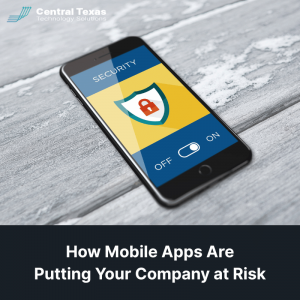
 Mobile apps have become the lifeblood of modern business operations. Whether your team is tracking time, managing tasks, or collaborating on the go, these apps help keep things running smoothly. But behind their convenience lies a growing risk that too many businesses overlook: security vulnerabilities that can quietly compromise your entire company.
Mobile apps have become the lifeblood of modern business operations. Whether your team is tracking time, managing tasks, or collaborating on the go, these apps help keep things running smoothly. But behind their convenience lies a growing risk that too many businesses overlook: security vulnerabilities that can quietly compromise your entire company.
If you're using mobile apps to manage your operations, communicate with your team, or serve your customers, it's time to take a closer look at what those apps might be exposing and how to protect your business from unexpected damage.
Mobile Apps Are a Growing Business Risk
Most companies assume that if an app is widely used and comes from a legitimate source, it must be secure. However, recent research shows that this assumption is dangerously flawed.
Cybersecurity firm Zimperium analyzed over 17,000 enterprise mobile apps and found that a staggering number had serious security flaws. Among the most common issues:
- Misconfigured cloud storage, leaving sensitive information exposed
- Hardcoded credentials, like passwords built directly into the app code
- Outdated encryption protocols, offering little to no real protection
These problems aren’t exclusive to a single platform. In fact, the analysis revealed over 11,000 iOS apps and more than 6,000 Android apps with major vulnerabilities.
In short, the apps your team uses every day could be quietly leaking your company’s data without your knowledge.
The Hidden Impact on Your Business
The apps your employees rely on might not carry malware or ransomware, but they can still open the door to disaster. Many of these platforms collect and store significant amounts of data, from login credentials to internal documents. If these systems are insecure, they don’t need to be malicious to cause damage.
Here’s what’s at stake if these apps are compromised:
- Data breaches that expose sensitive business or customer information
- Loss of customer trust, especially if personal data is involved
- Regulatory penalties due to non-compliance with data protection laws
- Reputational damage that can take years to repair
The worst part? These issues often go undetected until real harm has already been done.
Mobile App Security Isn’t Optional
Stopping the use of mobile apps altogether isn’t realistic for most businesses. They power everything from sales operations to field services, and they’re essential for remote and hybrid teams. What you can do, however, is make smarter, more informed decisions about the apps you allow and how they’re managed.
Here are five practical steps you can take right now:
1. Audit All Business Apps in Use
Inventory the mobile apps used across your organization. Know which apps are installed, what permissions they require, and how they interact with your network.
2. Vet Third-Party Vendors
Ask vendors about their security practices, including:
- Encryption standards
- Vulnerability response protocols
- Data storage and transmission policies
- SDK and API security
3. Keep Everything Up to Date
Apps that aren’t regularly updated are especially vulnerable. Make sure your team uses only the latest versions with all recent security patches installed.
4. Limit Sensitive Data Usage
Avoid storing confidential business or customer data in mobile apps unless it’s absolutely necessary. Less data stored means less data at risk.
5. Educate Your Team
Train your staff to recognize risky app behavior, avoid downloading unauthorized apps, and report suspicious activity immediately.
Productivity Without the Risk
Your team doesn’t need to stop using mobile apps, but you do need to take the risk seriously. With the right precautions, you can continue benefiting from the flexibility and speed that mobile technology offers, without putting your company’s future in jeopardy.
When mobile app security becomes part of your IT strategy, your business becomes stronger, your data safer, and your customers more confident.
FAQs About Mobile Apps for Business
1. Are free mobile apps more dangerous than paid ones?
Not necessarily. Both free and paid apps can have vulnerabilities. The key is how well the app is maintained, secured, and vetted before being used in your business environment.
2. What types of data are most at risk through mobile apps?
Login credentials, customer information, internal documents, and even location data can all be compromised if a mobile app is insecure or poorly designed.
3. How can small businesses afford to properly vet their apps?
Start with basic steps like reviewing app permissions, enabling mobile device management (MDM), and working with an IT provider who understands mobile security best practices.
Contact CTTS today for IT support and managed services in Austin, TX. Let us handle your IT so you can focus on growing your business. Visit CTTSonline.com or call us at (512) 388-5559 to get started!
